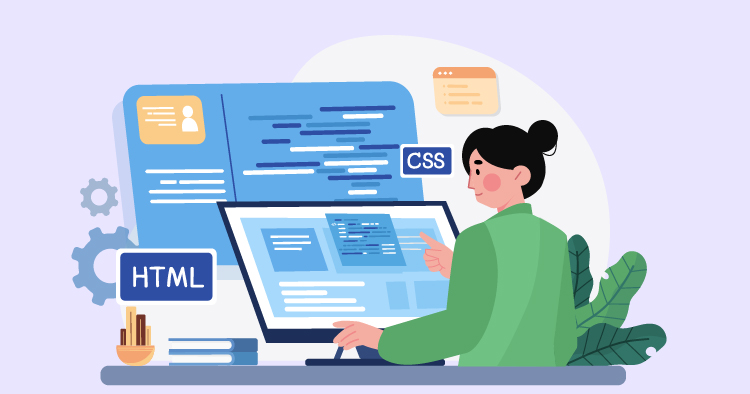Starting a web development project can be daunting, but understanding the services involved can make it much more manageable. Web development includes everything from sketching out your initial ideas to putting your website out there for the world to see and then keeping it running smoothly. A reliable service provider will be with you every step of the way. They’ll make sure your website is not just lovely to look at but also works well, is easy for people to use, and is set up to be found easily on search engines like Google. Let’s dive into the various aspects of web development services and what you need to know when choosing a provider to help you establish a solid online presence for your business.
Understanding Comprehensive Web Development Services
Creating a solid online presence is key for any successful business, and that’s where web development services come in. These services include a variety of tasks that help build a website that’s good-looking, easy to use, and packed with the latest features. Knowing what web development professionals offer is essential for businesses aiming to make an impact online. This article will delve into the different aspects of web development and what businesses can expect when they hire these services.
Web development is all about building and maintaining websites. It’s a broad field that includes everything from creating simple pages showing text and images to developing complex software running in your web browser. Web development is critical to how we experience the Internet, as it provides the groundwork for creating websites and online services.
Web development combines different technologies and programming languages. Developers use HTML and CSS to set up the website’s basic look and layout, and JavaScript adds interactivity. Developers use backend programming languages like PHP or Python for the behind-the-scenes work. Each technology has a particular job, and they all work together to make a website that works well and looks great.
The Benefits of Hiring a Professional Web Development Company
When you hire a professional web development company to do the work for you, there are many benefits. These experts have the experience and know-how to build a top-notch website. They can take care of everything from the design to the technical stuff in the backend, doing it quickly and well.
Having a professionally developed website can make a tremendous difference for small businesses. An excellent website makes it easier for visitors to use, helps you show up better in search engines, and boosts your business’s image online. This is super important for small businesses that want to get noticed and hold their own in the competitive online world.
Exploring Different Web Development Services
Creating a website that draws people in and offers a smooth browsing experience is critical. Visitors are likelier to stick around when a website looks great and is easy to use. Web development experts work hard to make sure a site’s design reflects your brand’s identity and that it’s a breeze for visitors to navigate.
For a website to shine, it should have a sensible layout, consistent branding throughout, and clear prompts for users to act. The goal is to combine beauty with functionality, giving users a pleasant and straightforward experience every visit.
Select one of over 500 designs and establish your online presence.
- Free Web Hosting
- Fully Managed Solutions
- Scalable Websites
- No Hidden Cost
Front-end development creates the part of your website that visitors interact with directly. This involves using coding languages like HTML for structure, CSS for style, and JavaScript for interactive elements, ensuring the site looks good and works well.
Front-end developers also use various tools and frameworks to bring websites to life. React and Angular, for example, help create sites that respond quickly and engage users with interactive features. The choice of tools can make a big difference in how a website feels and operates.
The back end of a website is where all the behind-the-scenes magic happens. It’s responsible for server communication, database interactions, and ensuring everything on the site functions as it should. This unseen part of the website keeps it running smoothly and securely.
In the world of back-end development, there’s an array of programming languages and frameworks to choose from. Developers might pair PHP, Ruby, or Python with frameworks like Node.js or Django. Developers choose these tools for their ability to build robust, flexible web applications that can grow with your business.
Mobile-Friendly and Responsive Web Development
More people than ever are using their smartphones to browse the internet. This means having a website that looks good and works well on mobile devices is crucial. If a site isn’t mobile-friendly, users might leave it for one that is easier to navigate on their phones.
Responsive web development is the method of building a website that looks and functions well on any device, whether a desktop computer, a tablet, or a smartphone. This approach ensures that the website adjusts its layout and settings automatically to fit the screen it’s being viewed on, providing a better user experience.
E-Commerce Solutions and Online Store Development
For small businesses, moving sales online can be a game-changer. An online store can reach customers beyond local boundaries, boosting sales and growing the business. Creating an attractive and easy-to-use online store is essential, but it must also be secure to protect customers’ information.
Developing an online store involves several steps. It starts with designing a layout that is easy for customers to use and ends with setting up secure payment systems to handle transactions safely. The aim is to make the whole shopping process smooth and hassle-free, which can encourage customers to return and make more purchases.
Content Management Systems (CMS)
A Content Management System, or CMS, is a tool that helps you build and manage your website even if you’re not tech-savvy. It’s like the control panel for your site, where you can add or change content without knowing how to code.
Select one of over 500 designs and establish your online presence.
- Free Web Hosting
- Fully Managed Solutions
- Scalable Websites
- No Hidden Cost
Several popular CMS platforms exist, such as WordPress, Joomla, and Drupal. Each one offers original features and ways to customize your site. They simplify keeping your website up-to-date and relevant, which is critical to engaging visitors and improving your online presence.
Search Engine Optimization (SEO) in Web Development
SEO is an essential part of web development. It helps websites show up higher in search engine results. When your site ranks well, more people can find it, which could lead to more customers and business.
When building a website, you can do a lot to help with SEO. Writing clean code and organizing your website well makes it easier for search engines to understand your site. Websites that load quickly are also important, as search engines know this, and people don’t like to wait. Ensuring your site looks good and works well on phones and tablets is another big part of SEO, as more people use mobile devices to browse the internet.
It would be best to use headings and descriptions that tell search engines and people what your website is about. Adding extra details, like schema markup, and describing images with alt tags can give you an edge. These steps help search engines know exactly what’s on your site.
Starting with SEO in mind when developing a website lays a strong foundation. This way, your site is ready for search engines from the beginning, which is essential for doing well online.
Website Maintenance and Support
It’s crucial to keep your website running smoothly and up-to-date. This means regularly refreshing the content, squashing any bugs that pop up, ensuring the site’s features are working well, and keeping up with the latest web standards and tech advancements. It’s like taking your car for regular check-ups to ensure it keeps running without a hitch.
Having someone to help with any problems after your website goes live is just as important. Tech support can cover a range of things, from sorting out glitches to running security checks and updating software to keep your site safe and sound. By staying on top of maintenance and support, you ensure visitors have a smooth experience every time they visit your site. Plus, it helps your site stay relevant and practical as the digital world continues.
Integrating Third-Party Services and APIs
Adding third-party services and APIs to your website is like giving it superpowers. These tools can add new features and functions that might not be part of the original design. Consider adding social media feeds, payment systems, maps, or tools that analyze how visitors use your site. There’s an entire world of options out there that can make your site do more for you and your visitors.
Hooking up these external services means that your site can offer a more connected and comprehensive experience. For example, customers could pay for their purchases on your site with a secure payment system or see real-time social media updates. Using existing solutions saves you time and effort and makes your website more engaging and user-friendly.
Security and Data Protection in Web Development
Think of the internet as a city teeming with activity. It’s exciting and full of possibilities, but just like any city, it has its dangers. That’s why securing your website is so important. It’s like locking your doors to keep out unwanted guests. Protecting your website from cyber threats and keeping user information safe are not just technical issues but also legal and ethical ones.
Best Practices for a Secure Website
Keeping your website secure is a bit like looking after your health. Here are some things you can do to stay safe:
– SSL certificates encrypt data between the user and the website. It’s like putting your letters in an envelope before mailing them.
– Regular security checks are performed to find weak spots, similar to health check-ups that catch issues early.
– Keep your software and plugins updated. It’s like updating your home security system to avoid the latest threats.
– Set strong password policies and use secure data storage, akin to having sturdy locks on your doors.
– Make regular backups of your website. If anything goes wrong, it’s like having an insurance policy that lets you fix things quickly.
Protecting User Data
Handling user data should be like taking care of someone’s valuable possessions. You must respect privacy laws and have clear policies, much like respecting someone’s personal space. Following regulations such as the GDPR is like adhering to road rules–it’s there to protect everyone’s rights.
A website that manages data securely and transparently is more than just law-abiding; it builds trust. And trust can make your business more credible, much like having a solid reputation in the real world.
Final Thoughts
Choosing the right web development services is vital to your website’s success. Web development is not just about making a site; it’s about creating an online presence that represents your brand and connects with your audience. Web development that considers design, functionality, user experience, and support prepares your business for today and the future.



